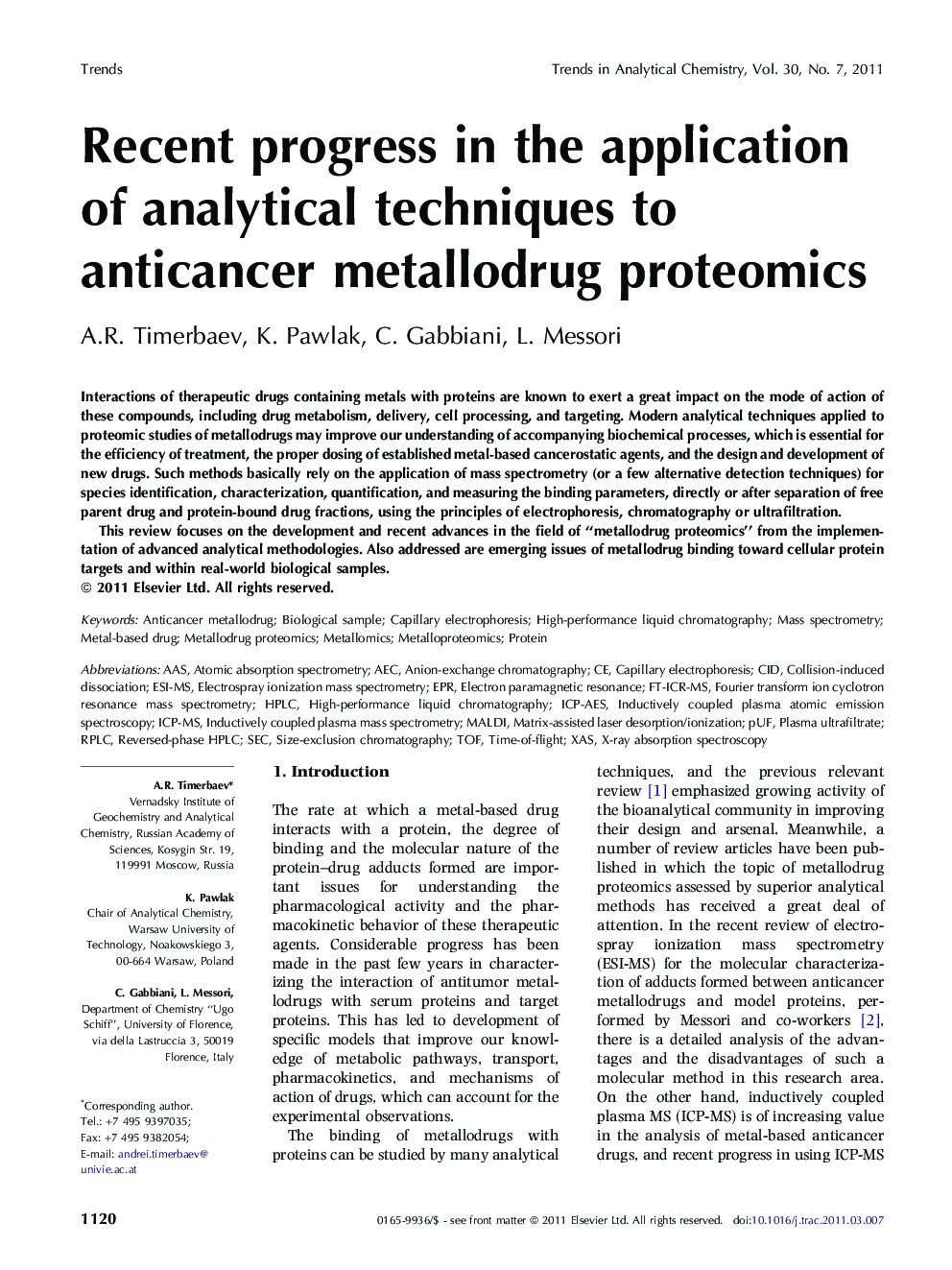| Article ID | Journal | Published Year | Pages | File Type |
|---|---|---|---|---|
| 1249239 | TrAC Trends in Analytical Chemistry | 2011 | 19 Pages |
Interactions of therapeutic drugs containing metals with proteins are known to exert a great impact on the mode of action of these compounds, including drug metabolism, delivery, cell processing, and targeting. Modern analytical techniques applied to proteomic studies of metallodrugs may improve our understanding of accompanying biochemical processes, which is essential for the efficiency of treatment, the proper dosing of established metal-based cancerostatic agents, and the design and development of new drugs. Such methods basically rely on the application of mass spectrometry (or a few alternative detection techniques) for species identification, characterization, quantification, and measuring the binding parameters, directly or after separation of free parent drug and protein-bound drug fractions, using the principles of electrophoresis, chromatography or ultrafiltration.This review focuses on the development and recent advances in the field of “metallodrug proteomics” from the implementation of advanced analytical methodologies. Also addressed are emerging issues of metallodrug binding toward cellular protein targets and within real-world biological samples.
